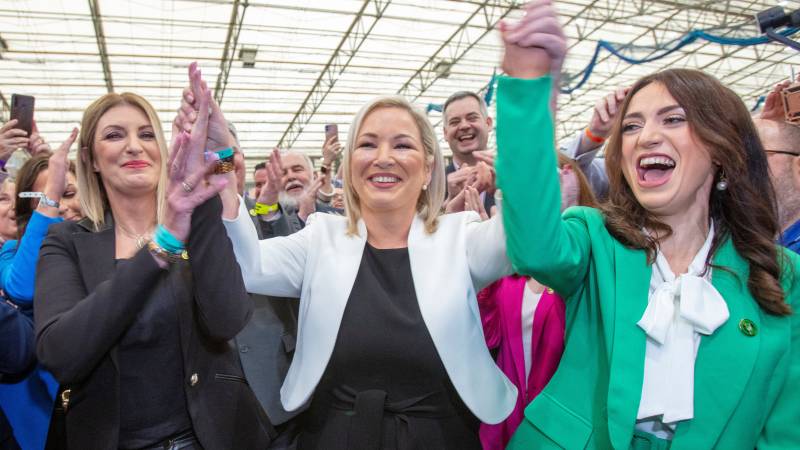Sinn Fein received the most votes in the Northern Ireland election after the first round, according to the BBC. The pro-Reunification party in Ireland, with 29 percent of the vote, is ahead of the second strongest, the pro-British Democratic Unionist Party, which gets 21.3 percent of the vote.
In the previous elections, the difference between the two parties was only 0.1 percent. It should be clear what the current seat allocation result means by Saturday at the latest, British media reported.
Sinn Fein has always had close ties to the Irish Republican Army, a movement that fought violently to join Ireland. Party leader Michelle O’Neill called the victory a “historic result” and said it would focus on the rising cost of living and healthcare.
paralysis
If Sinn Féin really becomes the largest party, it will also be allowed to supply the Prime Minister, and that means a kind of political earthquake. Until now, the position of Prime Minister has always been held by the parties who favored maintaining union with Great Britain and who did not want Northern Ireland to become part of Ireland.
The formation of the government may fail due to the ongoing dispute over Britain’s exit from the European Union. The Good Friday Agreements of 1998 state that the largest nationalist and unionist parties should cooperate. Failure to do so could paralyze politics in Northern Ireland and create a constitutional crisis that would require the intervention of the British government.

“Infuriatingly humble social media buff. Twitter advocate. Writer. Internet nerd.”








